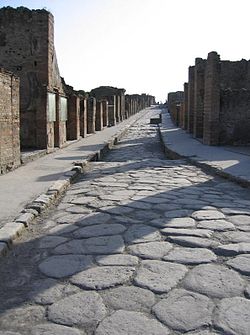Let's start with the
bare facts. In order to have complete appreciation for a
Civilization, especially one such as Ancient Rome, it is imperative
to have a knowledge of all the aspects of that civilization. For
example, the art of Rome can oftentimes be of a questionable nature.
But, it is important to have a full exposure (no pun intended) of the
various styles and forms of expression.
In 1998, President
Bateman prohibited the display of Rodin's The Kiss
in which Rodin represents the story of the lustful Francesca
and Paolo. This story which is found in Dante's The
Inferno
is a prominent story that explains the “rules” of love and
courtship for the Romans. The controversy enveloping the statue was
that of nudity and portraying and sending sexual messages.
Because
of this, one of the main reasons that The
Kiss
was banned, was for the benefit of children who may have entered into
the exhibit with their families. Although this presented a good case,
there were a few options that could have been taken to still allow
the statue to be shown. There could have most definitely been
warnings prior for families entering into the exhibit stating that
some depictions could leave things up to the imagination and were
therefore unsuitable for children. This would have left it up to the
parents to decide whether or not to expose their children to nude
artwork. It's not like people didn't know what they were getting
into; Roman art is well known for nudity.
The
Kiss
should have been displayed, if for no other reason, in order to
depict the master skill of Rodin and what he made with his hands,
which was the theme of the exhibit anyways. By exposing people to all
forms of art, one is able to learn and understand culture and explain
customs and beliefs that different society contains. You can not ever
please everyone and sometimes when the educational aspect is
threatened, the verdict, even if it seems offensive, ought to be in
favor with the opposed
*disclaimer: This was extremely difficult, because I agreed with President Bateman's argument in the first place. *









